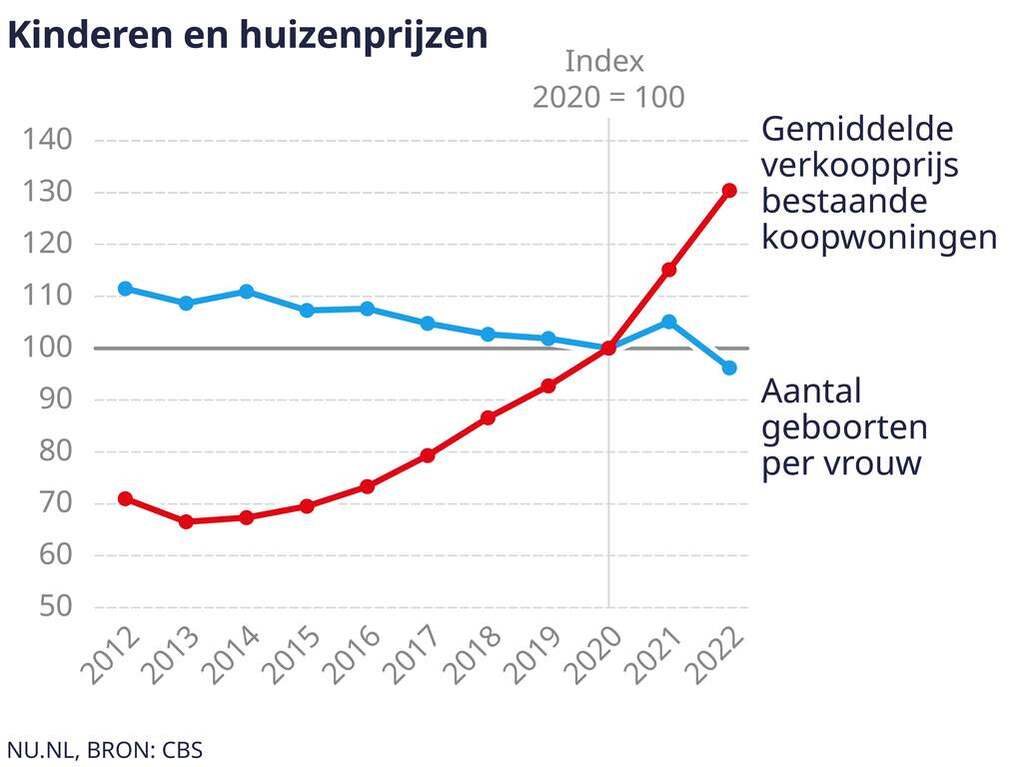Tenants in expensive regions have children less often than homeowners. For tenants in cheaper regions, having children is also easier. There are “unequal opportunities for family formation,” concludes the CBS. The gap is growing between people who can and cannot start a family.
Women in regions with expensive houses have children less often on average than in more affordable regions, according to research by the CBS statistics office and the Netherlands Interdisciplinary Demographic Institute (NIDI). You can see this in the graph below.

The difference applies especially to tenants. Women who own a house are more likely to have a child if house prices in the region are higher. The CBS refers to women aged 16 to 45 in this study, but the results for men are very similar.
The birth rate has been declining since 2010. The classic explanation is that it was due to the recession that was playing at the time: people have fewer children when the economy is doing poorly.
Earlier studies have already shown that a low income and a flexible employment contract reduce the chance of a family. This new research adds rising house prices and the difference between renting and buying. That is partly related to income and the type of employment contract.
There are “unequal opportunities for family formation” on the housing market, concludes the CBS. Tenants are “more hindered than buyers in fulfilling the desire to have children.”
‘Growing gap in family formation’
The research cannot demonstrate whether there is a clear cause and effect, but it can reveal relationships. “The revealed relationships show that a growing gap in family formation has arisen between people with less and more security of existence,” says the CBS.
“The chance of starting a family naturally has nothing to do with the fact that you are a tenant or a buyer,” says CBS chief sociologist Tanja Traag.
“It has everything to do with being able to create the circumstances you need to start or expand a family. The bottom line is that we see that women with the least security of existence have the most difficulty creating a situation in which they can have a child.”
People do not move en masse to cheaper areas
The links between birth rates and house prices are strongest at the birth of first children. The length of home ownership also matters. “Probably because of surplus value,” says Traag. “It means you can limit your monthly expenses.”
“In a rental property you pay rent, but you don’t build anything with it. So not the feeling of security and financial stability either. The return on buying is also a emotional return,” explains the chief sociologist.
Incidentally, it is not the case that people move en masse to areas with lower house prices. Three quarters of the relocations take place within their own region.
“People are quite home-loving,” says Traag. “Of course you have wishes and you can move to a region where it is much cheaper, but that is not a large-scale trend.”